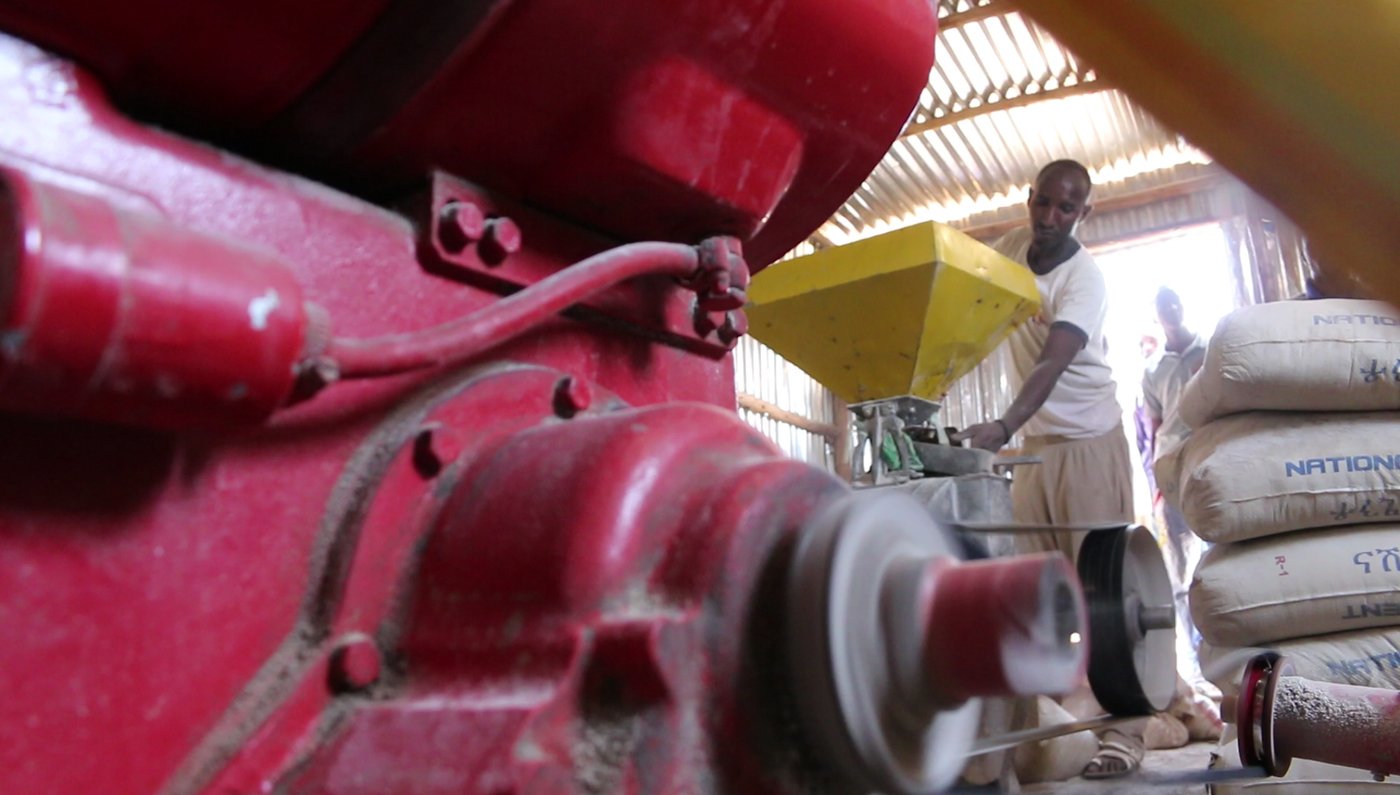
In February 2017, the Iskaashatada Hila’a, a women’s cooperative association in Harta Sheik town, established a grinding mill business, serving residents of area communities.
Fatuma Kahin (40), a senior member of the Hila’a association and the overall operations and accounts manager of the grinding mill, is thrilled to see how the project unites the people in her community.
“Everyone contributes to the project,” she says.
The feeling that others are committed and supportive gives us motivation and the inspiration to make the project succeed.Fatuma Kahin (40), operations and accounts manager of the grinding mill.
Team spirit
“The spirit of togetherness is the real foundation of our project. The feeling that others are committed and supportive gives us motivation and the inspiration to make the project succeed.”
“Our aim is to be able to generate income, expand our business and uplift the living standards of the wider community,” explains Fatuma.
Before the women bought the mill with funding from the Swedish International Development Cooperation Agency, they joined together to build the grinding house building and tool shed for their new milling business.
Severe drought effects
As many people in the Somali region now lack food due to successive poor harvests, the business’ client base has shrunk drastically. In the after-effects of El Niño, drought crisis has killed peoples’ livestock and erased livelihoods.
“When the drought ends, we hope to increase our profit as more people will be able to afford and access grains such as maize, wheat and sorghum,” explains Fatuma.

Future aspirations
According to Fatuma, the type of grain mill that they operate in Harta Sheik is only designed to crush grain and produce ultra-fine flour.
“Not all clients prefer the ultra-fine flour product, depending on how the flour is to be used, some prefer the moderate or the coarse flour. This means that we lose some clients who do not prefer our flour quality and therefore choose to go to our competitors,” explains Fatuma.
Even so, it is more profitable long-term to produce the ultra-fine flour which is used to make injera, Ethiopia’s staple flatbread dish.
Looking to the future, Fatuma hopes that the Norwegian Refugee Council will support their cooperative so that they can buy a second milling machine that will grind grains to produce moderately coarse flour. This will allow the women to obtain more potential clients, who are currently using the services of other millers in the region.
- Ethiopia is presently among the most drought-affected countries of Africa. The Somali region of Ethiopia in particular is experiencing one of the most severe droughts in half a century due to the after-effects of El Niño.
- Funding from donor SIDA has made it possible for the Norwegian Refugee Council to provide the Hila’a women’s group with a grant of 30,000 Ethiopian Birr (approximately 1,300 USD) which the members in turn used towards purchase a mill.
- The association is able to generate an average income of 250 Birr (10 USD) per day when more customers bring cereals to be milled and 90 Birr (4 USD) on days with fewer customers.
- The project empowers women through economic independence and aims to increase the living standards of the wider community
- In addition to the grinding mill project, the Norwegian Refugee Council continues to support programmes in Ethiopia, including food security and livelihoods, as well as for education, shelter, child protection, water, sanitation and hygiene.

